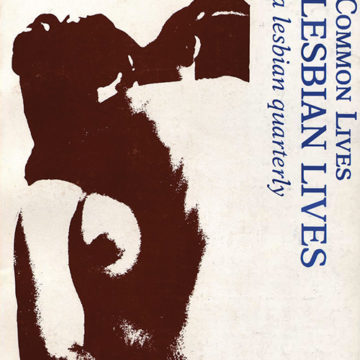Title (as given to the record by the creator): Fat and Female – One Woman’s View (1974)
Date(s) of creation: September – October, 1974
Creator / author / publisher: Karen W. Jones, NAAFA
Location: US
Physical description: 2-page PDF of an old web page
Reference #: Jones-FatandFemale-1974
Source: Largesse
Links: [ PDF ]
Transcript:
NAAFA Newsletter, Volume III, Issue No. 6
September-October, 1974
FAT AND FEMALE – ONE WOMAN’S VIEW
by Karen W. Jones
NAAFA Chapters Coordinator
Being a fat person today, as every NAAFAn knows, imposes a heavy burden of discrimination and social prejudice. For women, the penalties are doubly severe: among other things, being fat and female means that your chances of being accepted in a college are less than a fat man’s chances and only half those of a slim woman, with equal qualifications; most job opportunities, even in traditionally women’s fields–teaching, secretarial, clerical, nursing–will not be available to you because of arbitrary weight restrictions. If you can get insurance coverage at all, you will probably find yourself listed under Medical Disability, regardless of the state of your health, and have to pay exorbitant premiums; vital health services including birth control and prenatal care may be unobtainable, and if you should be raped (and fat women are raped), no policeman will take your attempt to report it seriously.
Obviously, these issues all involve discrimination based on weight, but they are feminist issues as well. My own consciousness of this began, I think, when I first became aware that diet ads–whether on TV or in a magazine, they held a kind of morbid fascination for me–were all aimed at women. The only men in them, in fact, were there to motivate or reward the (female) dieter. I began to see how diet ads perpetuate sexism: not only is their premise–that one must be slim to attract a man–wrong, they reinforce a dehumanizing scale of values by which women are judged primarily in terms of attractiveness. Since the predominant aesthetic automatically judges fat women not attractive, by our society’s standards we are not “real” women:
Women’s bodies contain more fat biologically than do men’s, and proportionately more women than men are termed “overweight”; women are also more likely than men to become fat, due to metabolic and other changes during pregnancy. Yet, despite this, a double standard still prevails by which a certain amount of paunch is socially acceptable on a man but even smaller-than-average women feel they must lose weight.
With these new perceptions, things started clicking into place for me. The cause-and-effect relationship between sexism and my oppression as a fat woman became clearer–why, for example, I had never been able to find clothes in my size when a man bigger than me could walk into any of several stores in my city and pick out things in his size. By the same token, however, I realized how fat men are oppressed by sexism, too: the “macho mystique” that correlates virility with muscularity and equates fat in men with a lack of masculinity is simply the other side of the coin, the male counterpart to sexist myths oppressing fat women.
Thin men (I call them “F.A.”s, for Fat Admirers) who go out with and/or marry fat women often find their masculinity called into question as well. With the possibility that they prefer such women ruled out by assumption, the only explanation left is that of deficiency–they must be real losers to be scraping the bottom of the barrel like that. That’s what society would like us to believe. The dehumanization of fat women creates a sort of reverse double standard that makes any man who chooses them guilty by association, while the opposite situation–a thin woman choosing a fat man–elicits little social disapproval. All of which shows just how far-reaching the effects of sexism are. Fear of fat, programmed into all women virtually from childhood, is used to manipulate us, to pressure and harass us into the self-destructive “reducing” schemes which take thousands of lives every year. It is time we recognized the basis of this manipulation for what it is: sexism.
Fat women are now, finally, beginning to come together within the Women’s Movement to voice our concerns. We are working to make the Movement recognize fat as a legitimate feminist issue and support women’s right to be fat. As feminists, we know we must expose the dangerous reducing fallacy (less than 2% of dieters lose weight permanently) that makes us see our weight as a personal failure rather than a political issue and allow our bodies to be abused for the profits of the powerful diet and reducing industry; and we must debunk the myth that we are fat by choice or gluttony, to create a positive image for ourselves based on an acceptance of the fact that it is as natural for some women–and men–to be fat as it is for others to be thin.
It has been said that every woman is one man away from welfare; for fat women, stripped of the benefits of male chivalry, this is all too often literally true. The condition of fat women reflects the true position of women in our society. In my opinion, everyone who shares a committment to ending discrimination based on weight should recognize the sexism it is founded on–we in NAAFA, especially, have a BIG investment in eliminating sexist biases if we are to tackle weightism ….and win!
[ED: The above article represents the opinions of the author and does not represent any position officially adopted by NAAFA.]




